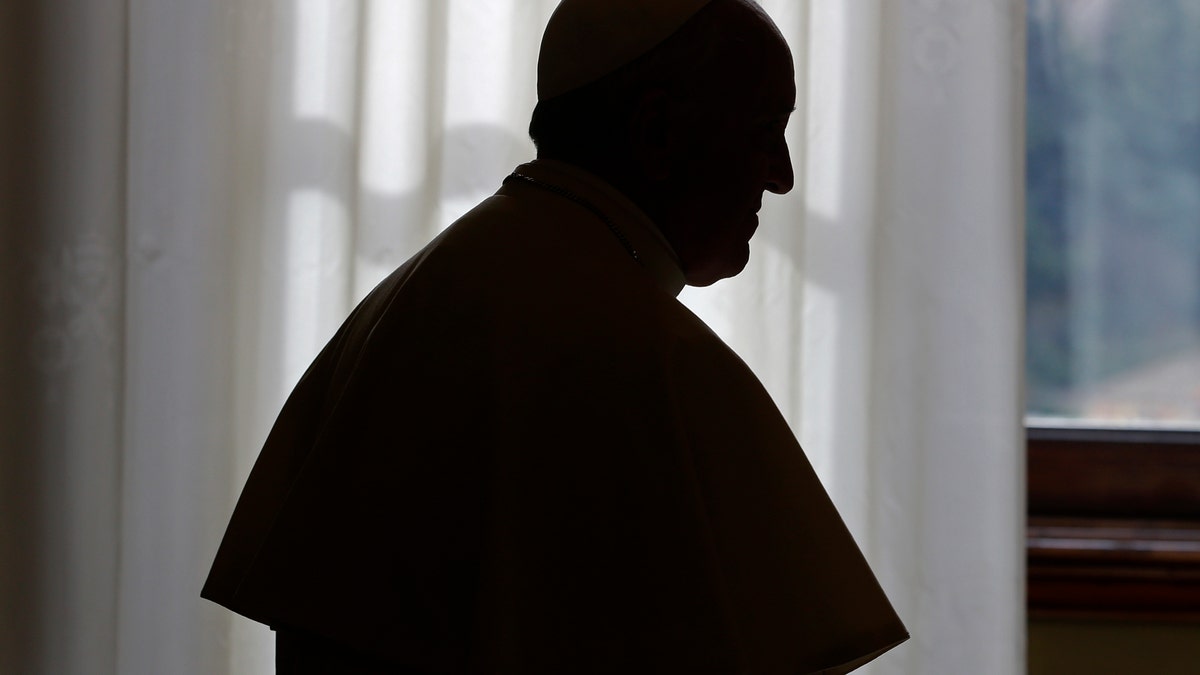
(AP Photo/Max Rossi, Pool)
It’s official! El Papa Francisco will be visiting the United States for the very first time in October 2015. He will be attending the World Meeting of Families in Philadelphia, which will be a huge rally in support of the family, an institution that has suffered many setbacks in the last few years. In some of our communities here in the United States, some might say it’s on life support.
The Meeting will be the culmination of a long process of investigation and reflection on the state of the family that began at the Synod on the Family. It’s a process that has stirred up significant interest, debate, and even controversy, as it has touched on some hot button issues like homosexual orientation and life-long fidelity, where long standing Judeo-Christian values conflict with today’s “everything goes” social mentality.
The right of each child to grow up with a father and a mother is a human right; the entire society reaps the benefits when children have their developmental and emotional needs met.
It has been the gleeful assumption in some quarters, and the anxious fear in others, that the Church has finally begun to assimilate itself to the notions of today’s modern people, who have been able to shed thousands of years of tradition and consensus in just a few brave decades.
My father, a Latino gentleman who has been a faithful son of the church since his baptism in 1936, picked me up at the airport after my visit to Rome to attend the Synod meeting in October. He asked me wonderingly, “Es verdad? Does the Church have to change?” I knew then that the terms of the discussion had been framed very effectively (and incorrectly) by the mainstream media, who have trouble seeing past a 24-hour news cycle, let alone comprehending the arc of world history.
I was very happy to send my father this week the whole text of Pope Francis’ comments at the Humanum Conference in Rome, during which he announced his upcoming visit. This conference brought together religious leaders from many different traditions in order to explore the “anthropological reality of marriage based on the complementarity of men and women.” In our brave new world, it appears to be necessary to spell out, in the most basic terms, something rationally accessible to a kindergartner: the unique way a man and woman come together is what produces children and starts a family.
- Folk saints gain popularity in Pope Francis’ native Argentina
- Pope Francis honors the poor, homeless as ‘unknown saints’
- New Chicago archbishop vows to push for immigration reform, battle gang violence, help the poor
- Four priests arrested for child sex abuse in Spain – pope has ‘special interest’ in case
- Elton John praises Pope Francis for pushing gay acceptance: ‘He’s my hero’
Pope Francis said, "we cannot qualify [family] based on ideological notions or concepts important only at one time in history.” The beautiful reality that a mother and a father permanently united and raising their children together is the most spiritually and socially enriching unit of any society, is a truth that cannot be obscured or changed by current fads, no matter how aggressive their promotion.
The Pope also explained that the family is experiencing an ecological crisis. He said, “social environments, like natural environments, need protection…We have been slower to recognize that our fragile social environments are under threat as well… It is therefore essential that we foster a new human ecology.”
He reminded us that when the marriage culture is diminished, it is women, children, and the vulnerable poor that suffer the most, as poverty and other social ills rise. The right of each child to grow up with a father and a mother is a human right, and the entire society reaps the benefits when children have their developmental and emotional needs met. The amazing personal and social benefit of marriage as a permanent and public union “transcends the feelings and momentary needs of the couple,” a concept that is becoming difficult to internalize in what the Pope likes to call our “culture of the temporary.”
I think that the clear defense of marriage and family by the Pope in this address will reassure my father and others like him. I hope it gets the attention it deserves. It probably won’t, of course. It is much more fun for some to write about the huge fortress of the Church finally surrendering to the prevailing tides and crumbling away. For two thousand years these same types have been waiting in vain.
